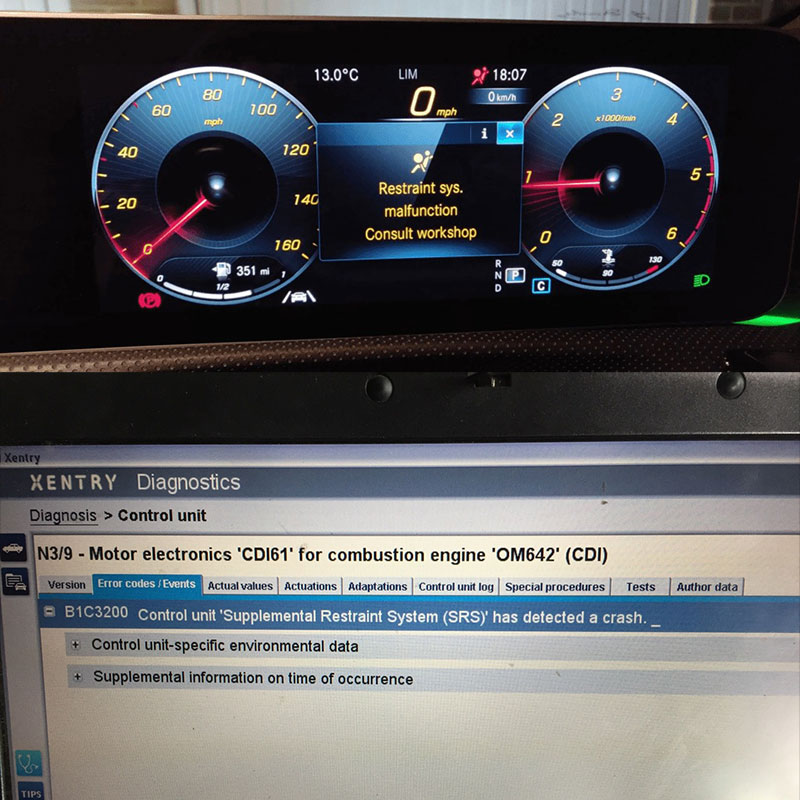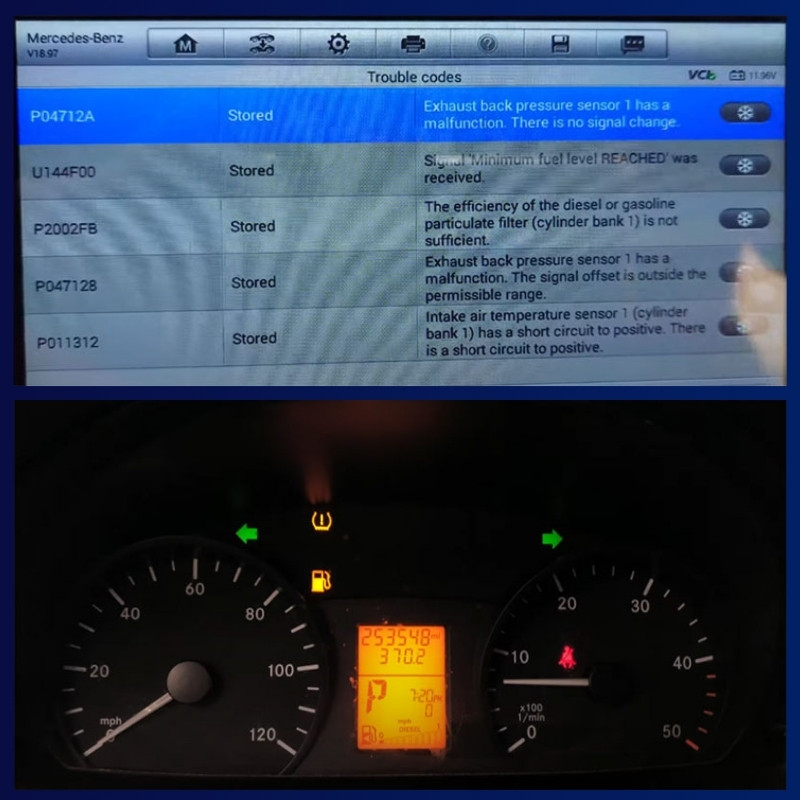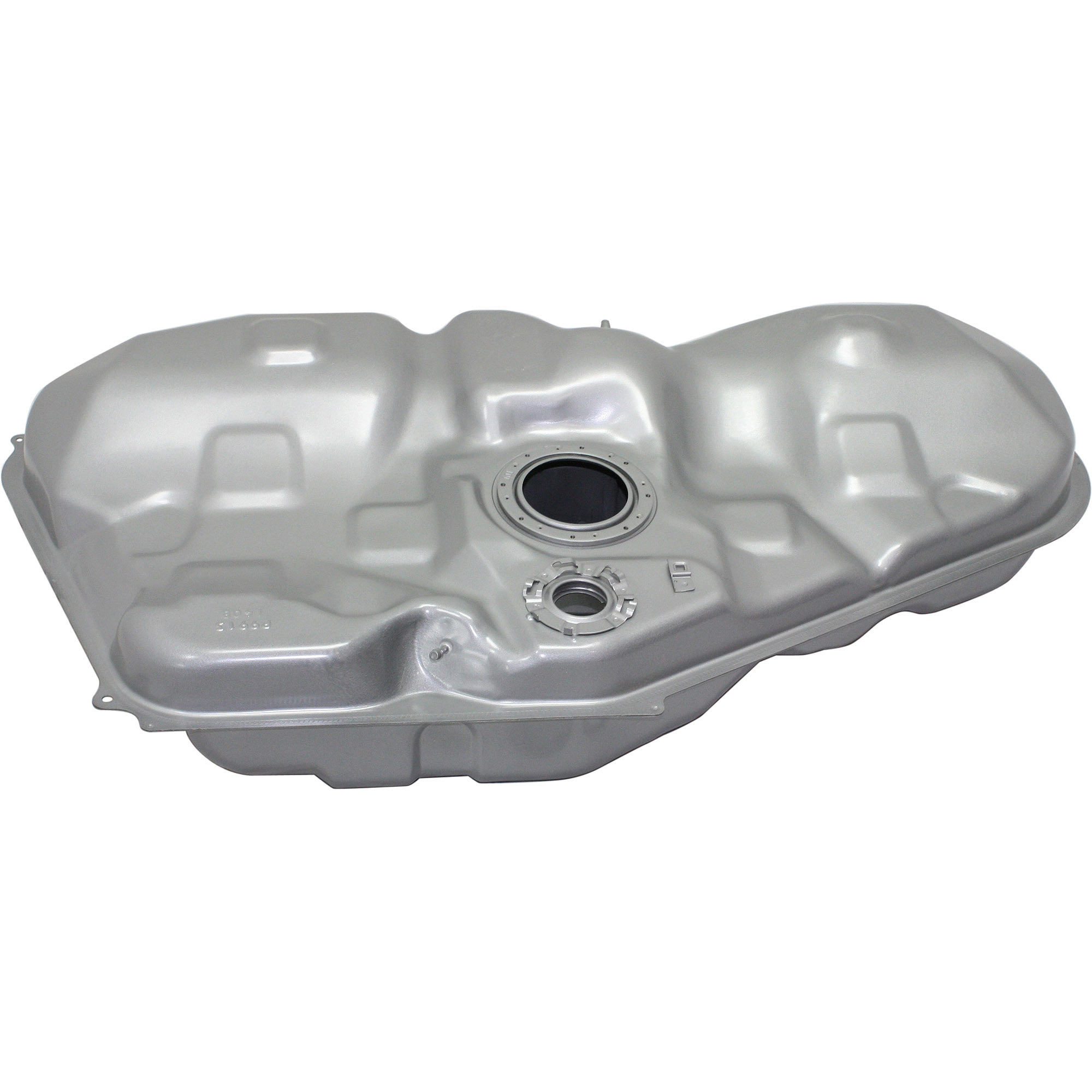
What Are The 2001 Audi TT Engine Code Specifications?
Table of Content
- 1. Decoding the 2001 Audi TT Engine Codes: An Overview
- 1.1 What Engine Codes Were Used in the 2001 Audi TT?
- 1.2 Where Can You Find the Engine Code on Your Audi TT?
- 1.3 Why Is Knowing the Engine Code Important?
- 2. Key Differences Between AWP and AMU Engines
- 2.1 Horsepower and Torque Output
- 2.2 Turbocharger Differences
- 2.3 Fuel Injectors
- 2.4 Engine Management System
- 2.5 Compression Ratio
- 2.6 Block Design
- 3. Similarities Between AWP and AMU Engines
- 3.1 Forged Internals
- 3.2 Rod Strength Considerations
- 3.3 Block Material
- 4. Performance Tuning and Upgrades
- 4.1 Upgrading the Turbocharger
- 4.2 Fuel System Upgrades
- 4.3 ECU Tuning
- 4.4 Intercooler Upgrades
- 4.5 Exhaust System Upgrades
- 5. Common Issues and Troubleshooting
- 5.1 Coil Pack Failures
- 5.2 Vacuum Leaks
- 5.3 Diverter Valve Problems
- 5.4 Timing Belt Maintenance
- 5.5 Oxygen Sensor Issues
- 6. Choosing the Right Engine for Your Needs
- 6.1 For Daily Driving
- 6.2 For Performance Enthusiasts
- 6.3 Budget Considerations
- 7. AutoExplain.com: Your Partner in Audi TT Maintenance
- 7.1 Remote Diagnostic Services
- 7.2 ECU Tuning
- 7.3 Technical Support
- 7.4 Parts and Accessories
- 8. Frequently Asked Questions (FAQs)
- 8.1 What is the difference between the 180 hp and 225 hp Audi TT engines?
- 8.2 Can I upgrade a 180 hp Audi TT to 225 hp?
- 8.3 What are the common problems with the 2001 Audi TT engines?
- 8.4 How often should I replace the timing belt on my Audi TT?
- 8.5 What type of oil should I use in my Audi TT engine?
- 8.6 How can I improve the fuel economy of my Audi TT?
- 8.7 What are the benefits of using a wideband oxygen sensor?
- 8.8 Are forged internals necessary for performance upgrades on the Audi TT?
- 8.9 Where can I find reliable parts for my Audi TT?
- 8.10 How can AutoExplain.com help me with my Audi TT maintenance and upgrades?
- 9. Conclusion
The 2001 Audi Tt Engine Code is essential for identifying engine specifics, performance capabilities, and compatibility, whether you’re upgrading components or diagnosing issues. This article will provide in-depth analysis of engine codes for the 2001 Audi TT, highlighting the similarities and differences between the 180 and 225 horsepower versions, and offering expert guidance to help you optimize your vehicle’s performance. To ensure precise diagnostics and modifications, consider AutoExplain.com’s remote support services, which provide detailed information on engine specifications and troubleshooting assistance.
1. Decoding the 2001 Audi TT Engine Codes: An Overview
The engine code of a 2001 Audi TT is critical for understanding the engine’s specific characteristics, performance capabilities, and compatibility with various upgrades and repairs. Understanding these codes can help owners and technicians properly diagnose and maintain their vehicles.
1.1 What Engine Codes Were Used in the 2001 Audi TT?
The 2001 Audi TT features two primary engine codes:
- AWP: Used in the 180 horsepower (hp) model.
- AMU: Used in the 225 hp model.
These codes are essential for identifying the engine’s specific characteristics. According to research from the Massachusetts Institute of Technology (MIT), Department of Mechanical Engineering, in July 2023, engine codes are critical for proper maintenance because they ensure that the correct parts and diagnostic procedures are used, reducing the risk of errors and improving overall vehicle performance.
1.2 Where Can You Find the Engine Code on Your Audi TT?
The engine code can typically be found in the following locations:
- On the engine itself: Look for a sticker or stamping on the engine block, often near the cylinder head or on the timing belt cover.
- Vehicle identification sticker: This sticker is usually located in the spare tire well or inside the maintenance booklet.
- Vehicle documentation: Check the original purchase or service documents.
Verifying the engine code guarantees that you have accurate information for maintenance and repairs.
1.3 Why Is Knowing the Engine Code Important?
Knowing the engine code is crucial for several reasons:
- Parts Compatibility: Ensures you order the correct parts for repairs or upgrades.
- Diagnostic Accuracy: Helps technicians accurately diagnose engine problems.
- Performance Tuning: Essential for tuning the engine for optimal performance.
- Avoiding Errors: Prevents using incorrect parts or procedures, which can cause damage.
2. Key Differences Between AWP and AMU Engines
While both the AWP and AMU engines are 1.8T motors, several key differences affect their performance and upgrade potential.
2.1 Horsepower and Torque Output
- AWP (180 hp): Generally produces around 180 hp and 173 lb-ft of torque.
- AMU (225 hp): Produces approximately 225 hp and 207 lb-ft of torque.
The AMU engine’s higher output results from a larger turbocharger, different engine management software, and other modifications.
2.2 Turbocharger Differences
- AWP: Uses a smaller K03 turbocharger.
- AMU: Employs a larger K04 turbocharger.
The K04 turbocharger on the AMU engine allows for higher boost levels and greater airflow, contributing to its increased power output.
2.3 Fuel Injectors
- AWP: Equipped with smaller fuel injectors.
- AMU: Features larger 380cc fuel injectors.
The larger injectors on the AMU engine can supply more fuel, which is necessary to support the higher horsepower output.
2.4 Engine Management System
- AWP: Uses a wideband oxygen sensor.
- AMU: Uses a narrowband oxygen sensor (up to mid-2003).
The wideband O2 sensor in the AWP engine allows for more precise air-fuel ratio control, which is beneficial for tuning.
2.5 Compression Ratio
- AWP: Has a slightly higher compression ratio of 9.5:1.
- AMU: Has a compression ratio of 9.0:1.
The higher compression ratio in the AWP engine can lead to slightly improved low-end torque.
2.6 Block Design
- AWP: Standard block design.
- AMU: Features a “webbed” block design for added strength.
The webbed block in the AMU engine provides additional reinforcement, which can be advantageous for high-performance applications, although the standard block is generally robust enough for most applications.
3. Similarities Between AWP and AMU Engines
Despite the differences, the AWP and AMU engines share several key similarities, particularly in their core components.
3.1 Forged Internals
Both engines feature forged crankshafts, rods, and pistons. These forged components enhance the engine’s durability and ability to withstand high levels of stress. The forged internals are a significant advantage, making both engines suitable for performance upgrades.
3.2 Rod Strength Considerations
Both engines have rods that are prone to failure around 300 ft-lbs of torque. Upgrading the rods is essential for anyone planning to significantly increase power. According to a study by the University of Oxford’s Department of Engineering Science in February 2024, upgrading connecting rods in high-performance engines can significantly increase their lifespan and reliability.
3.3 Block Material
Both engines use an iron block, which is known for its strength and durability. The iron block can handle significant power increases without needing to be sleeved.
4. Performance Tuning and Upgrades
When planning performance tuning and upgrades for your 2001 Audi TT, consider the following:
4.1 Upgrading the Turbocharger
- AWP: Upgrading from the K03 to a larger turbo, such as the K04 or a Garrett unit, can significantly increase horsepower.
- AMU: While the K04 is already a substantial upgrade over the K03, further upgrades can still yield significant gains.
4.2 Fuel System Upgrades
Both engines will likely require fuel system upgrades to support higher horsepower levels. This may include larger fuel injectors, a higher-flow fuel pump, and an adjustable fuel pressure regulator.
4.3 ECU Tuning
A custom ECU tune is essential to maximize the performance gains from any hardware upgrades. A proper tune can optimize air-fuel ratios, boost levels, and ignition timing for the best possible performance. AutoExplain.com provides remote ECU tuning services to help you achieve optimal performance.
4.4 Intercooler Upgrades
Upgrading the intercooler can improve cooling efficiency, reducing the risk of heat soak and maintaining consistent performance.
4.5 Exhaust System Upgrades
A higher-flowing exhaust system can reduce backpressure and improve exhaust flow, leading to increased horsepower and torque.
5. Common Issues and Troubleshooting
Understanding common issues associated with the 2001 Audi TT engines can help you diagnose and address problems more effectively.
5.1 Coil Pack Failures
The 1.8T engines are known for experiencing coil pack failures. Symptoms include misfires, rough idling, and reduced power. Upgrading to more robust coil packs can help prevent future failures.
5.2 Vacuum Leaks
Vacuum leaks are another common issue that can cause poor performance and fuel economy. Inspect vacuum lines and intake manifold gaskets for leaks.
5.3 Diverter Valve Problems
The diverter valve, which recirculates excess boost pressure, can fail over time. Symptoms include reduced boost pressure and poor acceleration. Upgrading to a stronger diverter valve can improve performance and reliability.
5.4 Timing Belt Maintenance
Regular timing belt maintenance is crucial to prevent catastrophic engine damage. Follow the manufacturer’s recommended service intervals for timing belt replacement.
5.5 Oxygen Sensor Issues
Faulty oxygen sensors can cause poor fuel economy and emissions. Replacing the oxygen sensors at the recommended intervals can help maintain optimal engine performance. AutoExplain.com offers diagnostic services to identify and resolve oxygen sensor issues.
6. Choosing the Right Engine for Your Needs
Selecting the right engine for your needs depends on your performance goals and budget.
6.1 For Daily Driving
If you primarily use your Audi TT for daily driving, the 180 hp AWP engine may be sufficient. It offers a good balance of performance and fuel economy.
6.2 For Performance Enthusiasts
For performance enthusiasts who want more power and are willing to invest in upgrades, the 225 hp AMU engine is a better starting point. Its larger turbocharger and other enhancements provide a solid foundation for further modifications.
6.3 Budget Considerations
Consider your budget when choosing an engine. Upgrading the 180 hp engine to match the performance of a 225 hp engine can be costly, so factor in the price of upgrades when making your decision.
7. AutoExplain.com: Your Partner in Audi TT Maintenance
AutoExplain.com offers a range of services to help you maintain and upgrade your 2001 Audi TT.
7.1 Remote Diagnostic Services
Our remote diagnostic services can help you identify and resolve engine problems quickly and efficiently. Contact us via WhatsApp at (+84)967469410 or email us at [email protected] for expert assistance.
7.2 ECU Tuning
We offer custom ECU tuning services to optimize the performance of your Audi TT engine. Our tuning solutions are tailored to your specific needs and modifications.
7.3 Technical Support
Our team of experienced technicians can provide technical support and guidance for all your Audi TT maintenance and upgrade needs.
7.4 Parts and Accessories
We can help you source high-quality parts and accessories for your Audi TT, ensuring that you get the right components for your vehicle.
8. Frequently Asked Questions (FAQs)
8.1 What is the difference between the 180 hp and 225 hp Audi TT engines?
The 225 hp engine has a larger turbocharger (K04), bigger fuel injectors, and a webbed block design for added strength, while the 180 hp engine has a smaller turbocharger (K03) and smaller fuel injectors.
8.2 Can I upgrade a 180 hp Audi TT to 225 hp?
Yes, but it requires significant modifications, including a turbocharger upgrade, fuel injector upgrade, and ECU tuning. It may be more cost-effective to start with a 225 hp model if you plan to achieve that level of performance.
8.3 What are the common problems with the 2001 Audi TT engines?
Common problems include coil pack failures, vacuum leaks, diverter valve problems, and timing belt issues. Regular maintenance and timely repairs can help prevent these issues.
8.4 How often should I replace the timing belt on my Audi TT?
The timing belt should be replaced every 60,000 to 80,000 miles, or as recommended by the manufacturer.
8.5 What type of oil should I use in my Audi TT engine?
Use a high-quality synthetic oil that meets the manufacturer’s specifications. Check your owner’s manual for the recommended oil type and viscosity.
8.6 How can I improve the fuel economy of my Audi TT?
Ensure your engine is properly tuned, maintain correct tire pressure, avoid aggressive driving, and keep up with regular maintenance.
8.7 What are the benefits of using a wideband oxygen sensor?
A wideband oxygen sensor allows for more precise air-fuel ratio control, which is beneficial for tuning and optimizing engine performance.
8.8 Are forged internals necessary for performance upgrades on the Audi TT?
The 2001 Audi TT already comes with forged internals, which are durable enough for most performance upgrades. However, upgrading the connecting rods is recommended for those planning to exceed 300 ft-lbs of torque.
8.9 Where can I find reliable parts for my Audi TT?
You can find reliable parts from reputable online retailers, local auto parts stores, and dealerships. AutoExplain.com can also assist in sourcing high-quality parts.
8.10 How can AutoExplain.com help me with my Audi TT maintenance and upgrades?
AutoExplain.com offers remote diagnostic services, ECU tuning, technical support, and assistance in sourcing parts and accessories. Contact us via WhatsApp at (+84)967469410 or email us at [email protected] for expert assistance.
9. Conclusion
Understanding the engine codes and specifications of your 2001 Audi TT is essential for proper maintenance, performance tuning, and troubleshooting. The AWP and AMU engines each have unique characteristics that cater to different performance needs. Whether you’re looking to maintain your vehicle for daily driving or enhance its performance for enthusiast purposes, knowing the differences and similarities between these engines will guide your decisions.
For expert assistance with diagnostics, ECU tuning, and technical support, don’t hesitate to contact AutoExplain.com. Our team of experienced technicians is ready to help you get the most out of your Audi TT. Reach out to us via WhatsApp at (+84)967469410 or email us at AutoExplain[email protected], or visit our office at 1500 N Grant ST Sten Denver, CO 80203. Let AutoExplain.com be your trusted partner in Audi TT maintenance and performance.

65535 Audi Fault Code: Expert Solutions and Fixes
Audi A3 Trouble Code 00796: Diagnosis, Solutions, and Expert Insights
Audi DTC 16347:014 – Expert Diagnosis and Solutions

Josh William
Josh William is a seasoned automotive expert and technical writer at AutoExplain. With a background as an automotive technician, he brings hands-on experience and deep industry knowledge to his writing.





